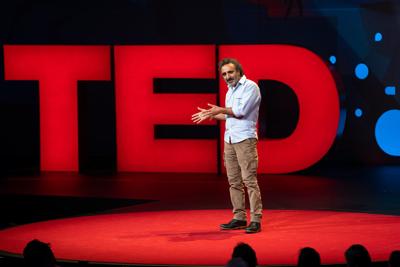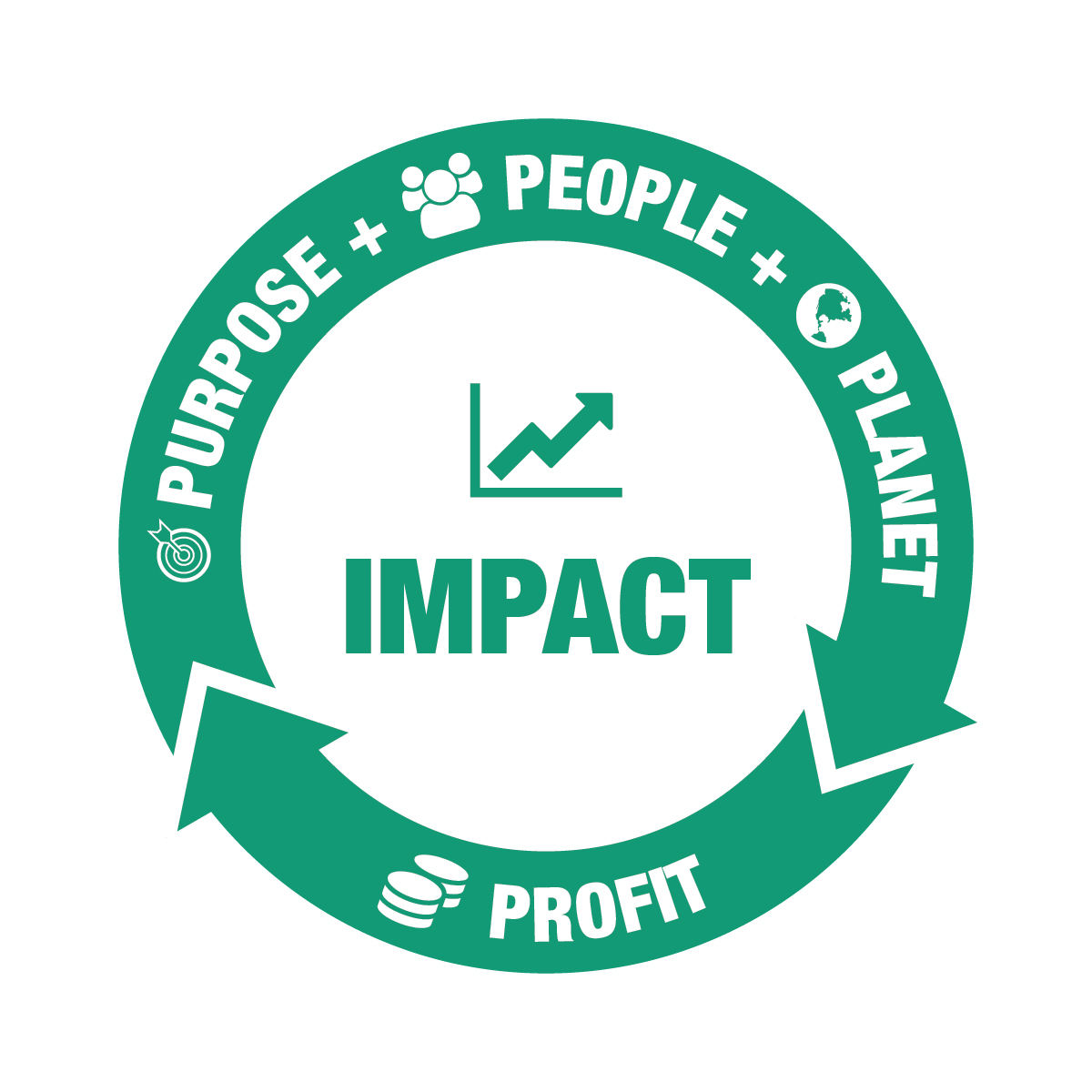
With over 600 daily posts, this site organically shows up in search results, so many readers may never see the opening paragraphs of the home page, where I set out my beliefs around the need for change in leadership and the part I wish to play to help:
Command-and-control leadership is losing its grip. A new way of thinking is emerging: leadership that embraces change as constant, encourages individual thought, relies on intuition more than data, fluidity more than hierarchy, trust more than fear, and the common good more than profit.
I act as sounding board, coach and strategic advisor to a select number of executives, founders, and companies around the world. Together we are pioneering new territory: not just in business leadership, but in leadership itself.
So, recently I watched a TED talk given in April 2019 by exactly the type of leader who is leading in the way I outlined above. As he got into talking about his philosophy of the anti-CEO, I nearly jumped out of my seat, with a “Yes!”.
In April 2019, Hamdi Ulukaya, founder of Chobani yoghurt, gave a TED talk called “The Anti-CEO Playbook“. Oh, and one of the three “plays” in his Anti-CEO playbook is all about Community.
As I write this I am in the home town of a client, a multi-billion dollar fast growth global professional services business. I’m here to support them with achieving their transformative vision. I’m very picky about who I work with as clients. Why this large corporation then? Simple. The purpose of this particular corporation is:
Creating Communities
It is possible to model Beautiful Leadership. Yes, even at global corporations.
So, let’s look more at Ulukaya’s TED talks and his playbook.
Hamdi Ulukaya opens his TED talk with a story, then the genesis of his philosophy.
“I just kept wondering: What is this all about? Corporate America says it’s about profits. Mainstream business says it’s about money. The CEO playbook says it’s about shareholders. And so much is sacrificed for it — it’s factories, communities, jobs. But not by CEOs. CEOs have their employees suffer for them. But yet, the CEOs’s pay goes up and up and up. And so many people are left behind.
I’m here to tell you: no more. It’s not right, it’s never been right. It’s time to admit that the playbook that guided businesses and CEOs for the last 40 years is broken.
It tells you everything about business except how to be a noble leader. We need a new playbook. We need a new playbook that sees people again. That sees above and beyond profits. In the movies, they have a name for people who take a different path to do things right. They call them “antiheroes.” I think we need the same idea in business. We need anti-CEOs, and we need an anti-CEO playbook.
So let me tell you about what this anti-CEO playbook is all about. An anti-CEO playbook is about gratitude. Today’s business book says: business exists to maximize profit for the shareholders. I think that’s the dumbest idea I’ve ever heard in my life.“
I’ve highlighted in bold the parts that had me leap up and say “Yes!”, and I now repeat the words from the top of the home page to this site with similar bold highlights:
Command-and-control leadership is losing its grip. A new way of thinking is emerging: leadership that embraces change as constant, encourages individual thought, relies on intuition more than data, fluidity more than hierarchy, trust more than fear, and the common good more than profit.
As you read further in this post you’ll see my thoughts on what has gone wrong with corporate leadership and therefore why I put in bold the last statement Ulukaya makes above.
Now I’ll touch on:
- My thoughts on what has gone wrong in, as Ulukaya notes, the last 40 years.
- A summary of the three simple “plays” in the Anti-CEO Playbook.
- My own thoughts on the way forward, as often repeated in posts on this site.
1 : “Profit as Ugly Leadership and what Adam Smith really meant”
{this section is a repost of part of a longer article from January 2019 called Beautiful Leadership – Purpose and the Corporation , this summarises what I feel has gone wrong}
In 1970, Milton Friedman famously said:
“There is one and only one social responsibility of business — to use its resources and engage in activities designed to increase its profits.”
Whilst I can understand any Economist working as an academic taking polarising views such as this, my opinion is that this is ugly leadership in our modern world.
Friedman’s views have broadly been at the centre of capitalist thinking for approaching five decades, and, I argue, has fostered a growing lack of connection to society and planet that has led to symptoms such as radically growing income inequality as well as loss of faith in capitalism as a model and so the rise of ugly populism across the world.
Now, Friedman is thought in this statement to reference the views of the founder of modern Economics, Adam Smith, yet as I outlined in “CEO Pay and Ugly Leadership“, Adam Smith’s work on such concepts as self-interest in “The Wealth of Nations” must always be taken alongside his other great work, “The Theory of Moral Sentiments”.
I consider the absolutist Friedman to be someone who clearly largely apes Smith’s economic thinking while ignoring his moral and societal thinking.
Now, in 2018, Jesse Norman wrote: “Adam Smith: What He Thought, and Why it Matters“, attempting to create a broader sense of how all of Smith’s written works integrate.
In “How Adam Smith would fix capitalism” in the FT in June 2018, Norman wrote of Smith’s philosophies :
“markets constitute a socially constructed and evolving order that exists and must exist not by divine right but because it serves the public good.”
2 : The “Plays” of the Anti-CEO Playbook
In his TED Talk, Ulukaya simplifies leading as an Anti-CEO into three “plays”, or themes
- Community
- Responsibility
- Accountability
As with any word, definition is key, so let me give you his words from his talk to define each word as he expressed them
Community:
“businesses should go to the struggling communities and ask, “How can I help you?”
“Go search for communities that you can be part of. Ask for permission. And be with them, open the walls and succeed together.”
Oh, and as I noted above, the theme of Community is particularly resonant for me as I sit writing in the home town of a client, a global corporation that has expanded rapidly from this town to their province to their country to their continent to a global footprint. At their core is a purpose, “Creating Communities”.
Responsibility:
“Today’s playbook says, the businesses should stay out of politics. The reality is businesses, as citizens, must take a side”
“The new way of business — it’s business, not government, in the best position to make a change in today’s world: in gun violence, in climate change, in income inequality, in refugees, in race. It’s business that must take a side.”
Accountability:
“Today’s playbook says, the CEO reports to the corporate boards. In my opinion, CEO reports to consumer”
“The new way of business — it’s the consumer we report to, not to the corporate boards. You see, if you are right with your people, if you are right with your community, if you are right with your product, you will be more profitable, you will be more innovative, you will have more passionate people working for you and a community that supports you. And that’s what the anti-CEO playbook is all about.”
This last statement leads me on to….
3 : The Way Forward
My most repeated share of a post I’ve written about this topic is: “Purpose, People, Planet. The new triple bottom line.”
Ulukaya says:
“if you are right with your people, if you are right with your community, if you are right with your product, you will be more profitable”
In my post, before giving multiple examples of corporations that make this model work at scale, I noted:
“we need a new triple bottom line, one that puts Profit as an outcome of focussing on the Source drivers of Purpose, People and Planet”
and
“unerring focus on Purpose+People+Planet as drivers allows the corporation to make Profits, which mean it can then focus more on Purpose+People+Planet and so make more Profit, and so on in a “virtuous circle”
You know what else? If, as Ulukaya teaches, you are “right with” people, community, product, not only will you be more profitable, but it is a heck of a lot easier and more fun to lead from a place where others choose to follow you on that journey, rather than finding all the ways to ensure your people are helping you with your key driver being maximising profit for shareholders.
So, if you want to learn more about how to make this happen for you as a leader, please contact me, I’d love to listen and learn. I may even have one or two reflections and ideas for you as you feel curious about this path.

